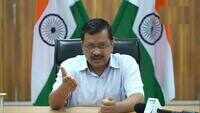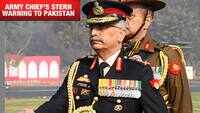
Ranchi: Amid the controversy over reports of railways charging stranded labourers for ferrying them back to their home states, chief minister Hemant Soren said on Monday that his government will bear the fares of migrant workers who want to leave the state and stranded Jharkhand residents returning to their home towns in special trains arranged by the state government.
Soren said, “We are clear that we will not take a single penny from labourers and students who are being brought back to the state. Two days ago, I had also requested the railway minister to not charge poor states like us for ferrying stranded migrants. The railways earns highest revenues from this state and in times of crisis, no money should be charged from us. But I don’t know what is the Union government’s decision regarding this issue. Notably, the railways, it seems, has enough money to donate over Rs 100 crores to the PM Cares fund.”
The state government, however, said it will not interfere in policies adopted by other states on sending back migrants to Jharkhand.
State finance minister Rameshwar Oraon, while saying that his Congress party, will bear the fares of those who are needy, also demanded that the Centre should bear the cost of transporting labourers. The Union government, on the other hand, came out with a clarification stating that the cost of running special trains will be shared on a 85:15 ratio between the Centre and the state concerned.
On Monday, over 1,100 migrants reached Dhanbad in a special train from Kozhikode. Many labourers, who had boarded that train, alleged that they had to pay Rs 800 to the railways for tickets.
Oraon, who is also the state Congress president, announced that his party will bear the travel expenses of the migrants returning to Jharkhand, if the state government finds it difficult to pay the amount.
He said, “The state government is giving undertakings to railways and the sender state on a case-to-case basis of bearing the cost of bringing back our labourers. But the railways and the Centre should completely waive off any such charges as states like us are already in a difficult financial spot.”
Citing a policy decision taken at the Congress’s central level, Oraon added, “Our national president Sonia Gandhi has already announced that the party will bear the travel costs of migrants. The Jharkhand unit of the party will follow the instructions given by the national leadership.”
Congress spokesperson Alok Dubey added, “We are going to set up helpline numbers for migrant labourers in every district.”
Jharkhand Janadhikaar Mahasabha (JJM), an umbrella organisation of rights groups, too, asked the Union government to foot the bill for inter-state movement of workers. “The government should ensure that private travel operators do not exploit the workers,” said JJM in a communiqué, adding that the government should pay labourers half of their monthly wages for the next three months. It also demanded that the Jharkhand government notify a clear protocol for getting the stranded workers back, among others.
Sources in the state transport department said the Telangana government had paid the expenses of running the first Shramik Special train that brought 1,200 migrants from the southern state to Hatia on May 1. Whereas, the cost of plying two trains that brought around 2,000 students from Kota to Hatia and Dhanbad on Saturday and Sunday, respectively, was borne by the Jharkhand government.
State transport secretary K Ravi Kumar, who is also the nodal officer for coordinating the return of migrants, said, “Some states have decided to charge money for sending the migrants back and we can’t intervene in their policy matters. The Jharkhand government, however, has taken a policy decision to not charge anything from the labourers.”
Soren said, “We are clear that we will not take a single penny from labourers and students who are being brought back to the state. Two days ago, I had also requested the railway minister to not charge poor states like us for ferrying stranded migrants. The railways earns highest revenues from this state and in times of crisis, no money should be charged from us. But I don’t know what is the Union government’s decision regarding this issue. Notably, the railways, it seems, has enough money to donate over Rs 100 crores to the PM Cares fund.”
The state government, however, said it will not interfere in policies adopted by other states on sending back migrants to Jharkhand.
State finance minister Rameshwar Oraon, while saying that his Congress party, will bear the fares of those who are needy, also demanded that the Centre should bear the cost of transporting labourers. The Union government, on the other hand, came out with a clarification stating that the cost of running special trains will be shared on a 85:15 ratio between the Centre and the state concerned.
On Monday, over 1,100 migrants reached Dhanbad in a special train from Kozhikode. Many labourers, who had boarded that train, alleged that they had to pay Rs 800 to the railways for tickets.
Oraon, who is also the state Congress president, announced that his party will bear the travel expenses of the migrants returning to Jharkhand, if the state government finds it difficult to pay the amount.
He said, “The state government is giving undertakings to railways and the sender state on a case-to-case basis of bearing the cost of bringing back our labourers. But the railways and the Centre should completely waive off any such charges as states like us are already in a difficult financial spot.”
Citing a policy decision taken at the Congress’s central level, Oraon added, “Our national president Sonia Gandhi has already announced that the party will bear the travel costs of migrants. The Jharkhand unit of the party will follow the instructions given by the national leadership.”
Congress spokesperson Alok Dubey added, “We are going to set up helpline numbers for migrant labourers in every district.”
Jharkhand Janadhikaar Mahasabha (JJM), an umbrella organisation of rights groups, too, asked the Union government to foot the bill for inter-state movement of workers. “The government should ensure that private travel operators do not exploit the workers,” said JJM in a communiqué, adding that the government should pay labourers half of their monthly wages for the next three months. It also demanded that the Jharkhand government notify a clear protocol for getting the stranded workers back, among others.
Sources in the state transport department said the Telangana government had paid the expenses of running the first Shramik Special train that brought 1,200 migrants from the southern state to Hatia on May 1. Whereas, the cost of plying two trains that brought around 2,000 students from Kota to Hatia and Dhanbad on Saturday and Sunday, respectively, was borne by the Jharkhand government.
State transport secretary K Ravi Kumar, who is also the nodal officer for coordinating the return of migrants, said, “Some states have decided to charge money for sending the migrants back and we can’t intervene in their policy matters. The Jharkhand government, however, has taken a policy decision to not charge anything from the labourers.”

Coronavirus outbreak
Trending Topics
LATEST VIDEOS
City
 Covid-19 crisis: Congress leader flouts lockdown norms, sends water tanker in Port Blair
Covid-19 crisis: Congress leader flouts lockdown norms, sends water tanker in Port Blair  Covid-19: With record 527 fresh cases in a day, Tamil Nadu's count rises to 3,550
Covid-19: With record 527 fresh cases in a day, Tamil Nadu's count rises to 3,550  If social distancing norms are violated, Delhi govt will seal the area and revoke all relaxations: Arvind Kejriwal
If social distancing norms are violated, Delhi govt will seal the area and revoke all relaxations: Arvind Kejriwal  Indian Army Chief Manoj Mukund Naravane gives stern warning to Pakistan
Indian Army Chief Manoj Mukund Naravane gives stern warning to Pakistan
More from TOI
Navbharat Times
Featured Today in Travel
Quick Links
Kerala Coronavirus Helpline NumberHaryana Coronavirus Helpline NumberUP Coronavirus Helpline NumberBareilly NewsBhopal NewsCoronavirus in DelhiCoronavirus in HyderabadCoronavirus in IndiaCoronavirus symptomsCoronavirusRajasthan Coronavirus Helpline NumberAditya ThackerayShiv SenaFire in MumbaiAP Coronavirus Helpline NumberArvind KejriwalJammu Kashmir Coronavirus Helpline NumberSrinagar encounter
Get the app



